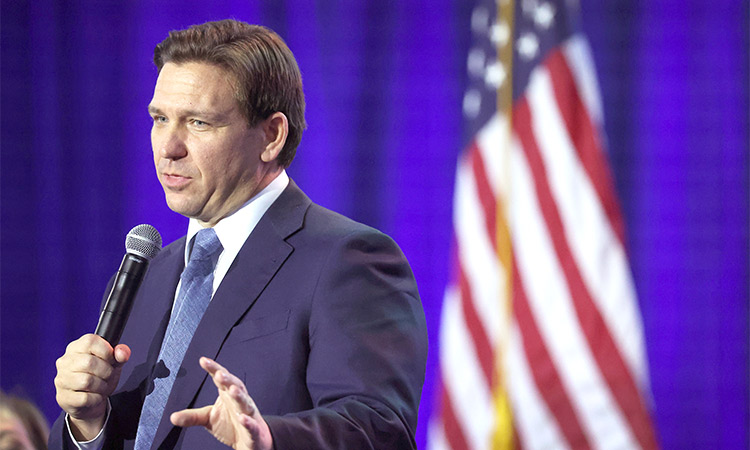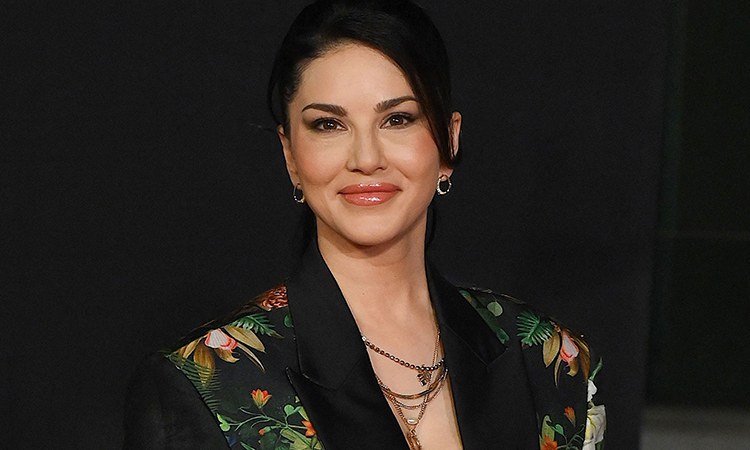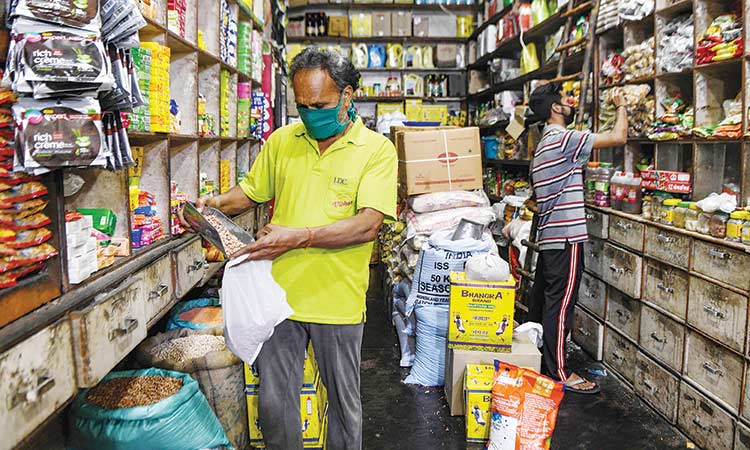Does DeSantis believe his biasedness about COVID vaccines?

Florida Gov. Ron DeSantis speaks to Iowa voters gathered at the Iowa State Fairgrounds in Des Moines, Iowa. Tribune News Service
The latest government advisories on the new monovalent COVID-19 vaccines were not much of a surprise. On Monday, the Food and Drug Administration approved the vaccines as safe and effective, and a day later the Centers for Disease Control and Prevention recommended the shots for all Americans over the age of six months.
Even less of a surprise was the reaction of the resolutely anti-vax, anti-science Florida Gov. Ron DeSantis. The Republican, who is angling for the GOP nomination for president, staged a roundtable of scientific mountebanks on Wednesday to attack the vaccines.
They included his crackpot state surgeon general, Joseph Ladapo, and Stanford professor Jay Bhattacharya, who is a member of a COVID-19 advisory committee assembled by DeSantis. Bhattacharya is also a purveyor of a fatuous programme of useless anti-COVID policies that has been impervious to the raw data that persistently demonstrated that it did not work.
In the course of the event, Ladapo announced that the state Department of Health would advise against anyone under 65 taking the new vaccine.
DeSantis’ roundtable took place, naturally, on X, the platform formerly known as Twitter, which is today most notable as the place where truth goes to die.
The roundtable, as one might have predicted, was an agglomeration of misinformation, misunderstanding and misrepresentation that amounted to a public health threat in real time.
It raised the question of how many lives would be saved across the country if DeSantis’ presidential campaign completes its glide path to irrelevancy, sapping his quest for the most politically expedient right-wing policy prescriptions. The answer, conservatively, is hundreds of thousands. Florida boasts one of the worst COVID death rates in the nation, more than 391 deaths per 100,000 population. If Florida’s rate were applied to the entire US population instead of the national rate of 338.6 deaths per 100,000, then nearly 1.3 million Americans would have perished from the disease, instead of the documented toll of 1.1 million.
(By the same token, if the entire US had California’s low death rate of 258 per 100,000, the national death toll would have been lower by 267,500.) In other words, the end to DeSantis’ boorish, charisma-free performance on the campaign trail would be a public health boon. Can there be any greater proof of the adage that “elections have consequences”? What’s curious is that DeSantis’ attack on the vaccines is a complete about-face from his initial reaction. On Dec. 14, 2020, he stood at a lectern in Tampa and bragged about having been on hand that day for the very first shipments of the vaccine to his state. “I had the privilege to be able to actually sign for the vaccines from FedEx,” he said.
Soon after that, however, he must have concluded that his path to challenging Donald Trump for the GOP presidential nomination involved kowtowing to the far right wing. That included embracing the anti-vaccination movement in a bear hug. That said, let’s take a look at the roundtable, which was a one-stop shop for anti-vaccine tropes. The event started out as a flat-out attack on the CDC and FDA, aimed at undermining the credibility of the nation’s leading public health agencies. This has long been a theme of DeSantis’ world. As long ago as 2021 he was fundraising off a personal attack on Anthony Fauci, who was not associated with either agency but was the nation’s most respected authority on epidemics and immunology. His campaign sold T-shirts bearing the slogan “Don’t Fauci my Florida.” An online fundraising appeal made Fauci the subject of every paragraph. “I refused to blindly follow Dr. Fauci... and allow him to strip Floridians of their God-given freedoms,” DeSantis declared. “I chose to lift Florida up, not follow the lead of Dr. Fauci and lock Florida down.” Ladapo opened the roundtable by stating, “We continue to live in a world where the CDC and the FDA, when it comes to COVID at least, are just beating their own path in a direction that’s just inexplicable, in terms of thinking about data and thinking about common sense.” This is a guy who has promoted nostrums that science has shown to be utterly useless against COVID, such as the anti-parasitic ivermectin and the anti-malarial drug hydroxychloroquine.
Ladapo turned the mike over to Bhattacharya. He aired the familiar anti-vaxxers’ complaint that the new vaccine has not been subjected to a randomized clinical test. This is a claim popularised by anti-vaxxer Robert F. Kennedy Jr., and it’s utterly bogus. As I reported earlier, randomized testing of every iteration of the current vaccines is unethical, unwise and unnecessary. The truth is that such trials are important when an entirely novel product is developed, as occurred when the mRNA vaccines against COVID most widely used today were originally developed by Moderna and Pfizer. “There’s been an enormous experience with this vaccine, with more than 13 billion doses distributed,” says Paul Offit, a vaccine authority at Children’s Hospital of Philadelphia and member of the FDA’s vaccine advisory committee. “It is arguably one of the best-studied vaccines in history, with a tremendous safety record,” Offit told me.
Demanding a randomised prospective trial for every iteration of this vaccine makes no more sense than doing so for the annual updates of the flu vaccine, which doesn’t happen, Offit says. Bhattacharya also implied that the protection against COVID provided by the previous vaccine versions is modest and “short-lived,” based on the waning of antibody levels over the months after the shot. Of the new shot, he said, “We don’t know that it protects you against being hospitalised, we don’t know that it protects you against dying.” Yet it’s well understood that antibodies always fade during the months after a shot.
In the case of COVID, Offit told me, “the critical immunological component responsible for protecting against severe disease is the memory T-cells, which are long-lived and recognise parts of the virus that have been generally conserved, from Wuhan-1 (the original recognised strain) to BA.2.86 (the rapidly spreading strain against which the new vaccines are expected to be effective).” As for the suggestion that the vaccinations don’t protect much against COVID, that’s absurd. Data have consistently shown that case and death rates have been higher among the unvaccinated than the vaccinated, sometimes as much as 14 times higher.
That brings us to what may be the most preposterous and irresponsible claim aired by Ladapo during the roundtable. “Multiple studies” in the US, the Middle East, Iceland and other places, he said, “are now finding that after four to six months, what was just waning effectiveness... is entering a negative area,” which means that after a period there is “risk of increased infection. This is obviously an enormous finding.” It also appears to be wholly mythical. Ladapo wasn’t very precise about where he got the idea that vaccination can increase susceptibility to COVID, a phenonomenon known as “negative immunity” or “negative efficacy.” But it needs to be stifled at birth.
I asked Ladapo’s health department to identify the studies he referred to. The agency didn’t respond, but the vaccine advisory it issued later Thursday listed 14 studies backing up Ladapo’s claims supporting his caution about the vaccines.







